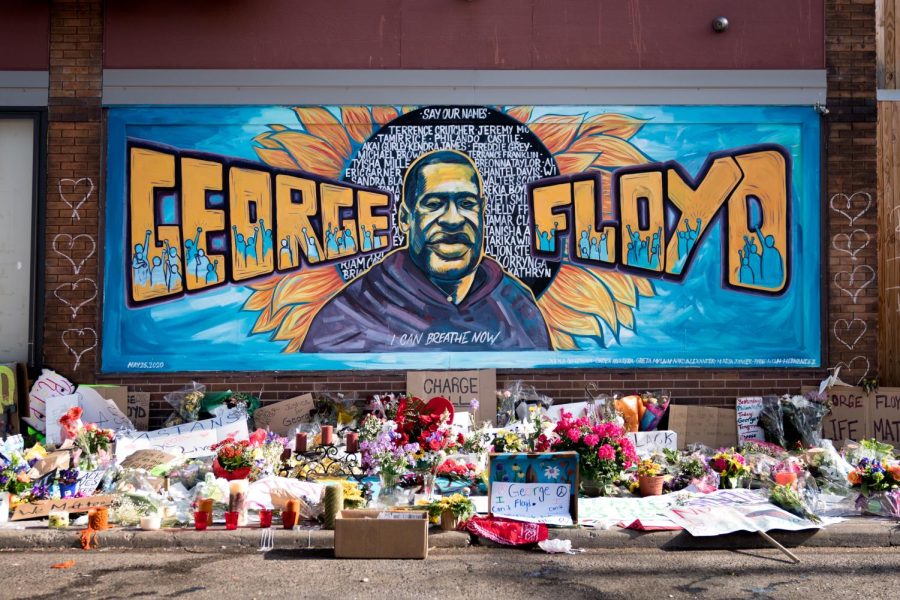Cops in George Floyd Case Being Held Accountable
Read about the consequences for the police officers that killed Floyd and sparked a nationwide movement.
“George Floyd mural outside Cup Foods at” (CC BY 2.0) by Lorie Shaull
The murder of George Floyd by police officers in Minneapolis, Minnesota in 2020 sparked a series of protests around the country against police brutality. Floyd, who was 46, died after former officer Derek Chauvin knelt on his neck for 9 ½ minutes. Three other officers were involved in the crime, including J. Alexander Kueng who knelt on Floyd’s back, Thomas Lane who held his legs, and Tuo Thao who kept back bystanders. Now, these four officers have been tried in both state and federal courts for their involvement that day.
In April 2021, Chauvin was found guilty in a state court of unintentional second-degree murder, third-degree murder, and second-degree manslaughter. For reference, murder is treated as a more serious crime than manslaughter as it includes the intention to kill whereas manslaughter is typically unintentional. In June he was sentenced by Judge Peter Cahill to 22 ½ years in prison. He has now appealed to the verdict in hopes of reducing his sentence. Chauvin also pleaded guilty in federal court to depriving Floyd of his “constitutional right to be free from the use of unreasonable force by a police officer” which resulted in a 21 year sentence that he is serving concurrently with his state sentence.
Lane was sentenced to three years in prison in September, when he pleaded guilty to a state charge of aiding and abetting in Floyd’s manslaughter. He had previously been sentenced federally to 2 ½ years for violating Floyd’s civil rights, and, thanks to a plea deal, he will be serving his time simultaneously as well.
Kueng also pleaded guilty to a state charge on October 24 for aiding and abetting Floyd’s second-degree manslaughter as part of a plea deal, dropping his previous charge of aiding and abetting Floyd’s murder. Kueng will be sentenced to 3 ½ years in prison after admitting that the violent restraint of Floyd was unreasonable. He was also sentenced in federal court to serve three years for willfully violating Floyd’s civil rights, and he too will serve both his state and federal sentences concurrently.
Thao, who previously said that he would be lying if he pleaded guilty, agreed to a bench trial instead of a jury trial over his state charge of aiding and abetting Floyd’s manslaughter. This means that any witnesses won’t need to testify again, but the court will receive the evidence and Judge Cahill will decide whether Thao is guilty or innocent. If he receives a conviction, the state agrees to drop the charge for aiding and abetting Floyd’s murder and solely charge him for aiding and abetting Floyd’s manslaughter. This will likely lead to a sentence of about four years, while the sentence for aiding and abetting murder is over 12 years. Thao was also sentenced in federal court for depriving Floyd of his constitutional rights resulting in a 3 ½ year sentence that he began this October.
While it seems these trials are almost over, the impact of Floyd’s death shed light on a major issue in this country. These trials may only convict the officers for their wrongdoings, but ideally, the awareness they create will lead to systemic change, ultimately putting a stop to police brutality across the nation.







